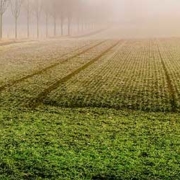Soil Conservation Farming
A lot is being said lately about soil conservation farming. Soil conservation farming is a movement that supports leaving fields untilled and using soil-enhancing methods to revive degenerated land. Proponents of soil conservation farming claim that this method of farming minimizes erosion and encourages plant growth.
These proponents also claim that farmers that employ soil conservation farming methods will see an increase in profits because crops raised using this method grow and flourish even through periods of drought or flooding. While farmers have been known to be wary of new methods, soil conservation farming is gaining ground. Statistics show that over the last 10 years, roughly 35 percent of crops in the United States were raised using soil conservation methods and no-tillage acres have almost doubled since 2000.
Acres planted with cover crops is also on the rise, although the percentage of these crops is still relatively low. Cover crops – such as legumes – are rotated with cash crops and cover the soil all year, acting as green manure.
Soil conservation farming advocates claim that by leaving fields unplowed and using cover crops, which act as sinks for nitrogen and other nutrients, farmers are able to increase the percentage of organic matter in the soil. And soil with more organic matter can absorb and retain more water.
These methods of farming are growing in popularity among some farmers. These farmers list several reasons why they have employed soil conservation methods. These include the threat of government regulation over agricultural pollution, extreme weather, increasing production costs, and a shortage of labor.
But not everyone believes soil conservation farming will benefit farmers. Critics say the method is not practical for most farmers and is too expensive. They also say farmers who use this method have a difficult time controlling weeds, are limited on how early they can plant their crops, and that it is difficult to deal with the residue that is left behind when fields are not tilled.
One thing is for sure. Farmers who want to reap the benefits of soil conservation farming need to possess one important quality: patience. It can take years for soil to recover. For this reason, many farmers try it for a year or two and then give up. Farmers who have stuck with these methods say they have had to embrace trial and error as there is no exact formula that works for every crop or piece of land.

